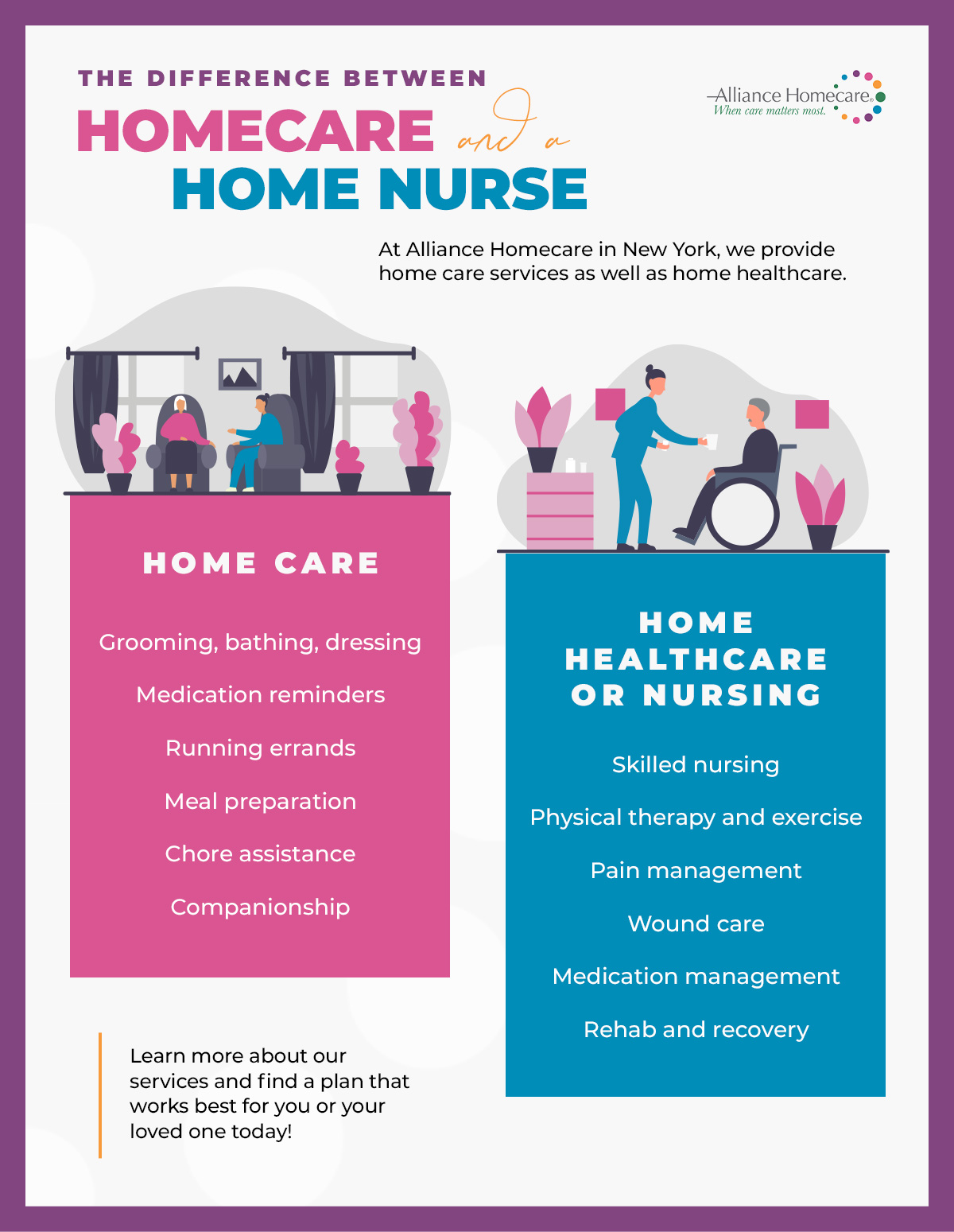The Relevance of Home Treatment in Special Needs Assistance: Exploring NDIS Registered Solutions
Home treatment is a fundamental aspect of handicap assistance, especially within the framework of NDIS registered services. It offers crucial solutions that foster self-reliance and improve overall high quality of life for individuals with handicaps. By offering individualized aid, these solutions deal with unique demands and choices. The effectiveness of home care relies on recurring interaction with NDIS coordinators. This vibrant connection exposes much deeper insights right into the transformative potential of tailored support. What obstacles and successes arise in this developing landscape?
Understanding the Role of Home Treatment in Disability Assistance
Home treatment plays a vital duty in the support of individuals with disabilities, giving significant solutions that promote freedom and boost lifestyle. It incorporates a series of support tailored to meet the one-of-a-kind requirements of each individual, including individual care, home jobs, and mobility support. Trained caregivers offer friendship and emotional assistance, fostering significant connections that battle social isolation.Furthermore, home care solutions are designed to adapt as conditions change, ensuring that people obtain the proper level of care throughout their lives. This flexibility permits for the assimilation of new treatments or innovations that may develop. By prioritizing the person's regimens and choices, home care equips them to keep control over their daily activities. Inevitably, the function of home treatment in disability assistance is vital, as it not only gives sensible help but additionally affirms the self-respect and autonomy of those it offers.

Advantages of Personalized Support at Home
Individualized support at home deals countless advantages customized to specific demands - home care providers. By creating customized assistance strategies, caretakers can greatly boost the freedom of people with handicaps. This strategy not just promotes autonomy but additionally cultivates a feeling of dignity and self-regard
Customized Assistance Plans
Tailored assistance plans play a necessary function in enhancing the high quality of life for individuals with handicaps. These tailored strategies are developed to address the unique demands and choices of each person, making sure that assistance solutions line up with their specific goals and lifestyle. By including customers in the preparation process, customized assistance strategies promote a sense of possession and empowerment. This customized technique enables caregivers to give pertinent help, whether it includes daily living activities, social involvement, or ability development. In addition, customized plans can adjust to altering circumstances, showing the developing demands of the individual. Inevitably, this individualized support improves not only everyday functioning yet additionally emotional wellness, enhancing the importance of a customized strategy in disability assistance solutions.
Enhanced Self-reliance Opportunities
People with impairments profit greatly from tailored support in the house, as it advertises enhanced self-reliance possibilities. Customized support enables people to take part in day-to-day activities with higher self-confidence and autonomy. Home care solutions can consist of help with personal care, meal prep work, and family monitoring, making it possible for customers to maintain their preferences and regimens. This tailored method cultivates a sense of control, encouraging people to choose that show their special needs and objectives. Furthermore, the convenience of home produces an acquainted setting, reducing anxiety and improving emotional well-being. In general, individualized aid not just sustains vital everyday jobs however additionally grows an extra independent lifestyle, enabling people with disabilities to flourish within their neighborhoods and accomplish higher personal fulfillment.
Overview of NDIS Registered Home Treatment Solutions
NDIS registered home care solutions incorporate different sorts of support tailored to people with disabilities (support at home). Comprehending eligibility and access to these services is crucial for optimizing the advantages of NDIS support. This introduction will certainly highlight the vital facets of home treatment under the NDIS framework
Types of Home Care
Home treatment services play a necessary role in supporting individuals with specials needs, supplying an array of alternatives to meet diverse requirements. NDIS registered home care solutions include personal care, which helps individuals with everyday tasks like showering and clothing. Domestic assistance aids preserve a secure and clean living environment, while reprieve treatment provides temporary relief for primary caregivers. Neighborhood access solutions make it possible for involvement in social and recreational tasks, promoting freedom and connection. In addition, nursing care provides clinical support in your home, ensuring health and wellness demands are met. Treatment solutions, including job-related and physiotherapy, help in recovery and skill advancement. With each other, these different kinds of home care add considerably to boosting the high quality of life for people with specials needs.
Eligibility and Accessibility
Exactly how can one access the vital home treatment solutions given under the NDIS? To get these solutions, people have to fulfill particular qualification standards described by the National Special Needs Insurance Plan. Candidates must demonstrate a considerable and long-term special needs that affects their daily website here functioning. The procedure begins with sending an Accessibility Demand Form, that includes documentation of the disability and its impact on life. As soon as approved, people receive a tailored strategy describing their required assistances, consisting of home treatment services. These services can be accessed through NDIS-registered suppliers, that need to follow stringent high quality and security requirements. Comprehending these actions assurances individuals can effectively navigate the NDIS system to get the essential assistance for their home treatment requirements.
Benefits of NDIS Support
Accessing important support with registered services uses individuals with specials needs a transformative opportunity to improve their quality of life. NDIS registered home care services offer customized assistance, making sure that each individual's unique demands are satisfied. These services encompass a wide range of assistances, including personal care, flexibility assistance, and therapeutic solutions, all created to promote self-reliance and wellness. In addition, signed up providers abide by rigorous quality criteria, guaranteeing a high degree of care and security. Individuals also profit from increased adaptability, allowing them to select solution shipment approaches that best fit their lifestyles. Eventually, NDIS assistance fosters a feeling of community and empowerment, making it possible for individuals with handicaps to engage more fully in their everyday lives and achieve personal goals.
Tailoring support to private requirements is necessary in handicap care, as everyone's conditions and preferences differ substantially. The National Disability Insurance Coverage Scheme (NDIS) highlights the relevance of individualized care plans that show the unique goals and needs of each participant. This method enables caretakers to concentrate on specific locations such as flexibility support, daily living skills, and emotional support, making sure that solutions are relevant and effective.
Enhancing Quality of Life With Home Care
While lots of people with handicaps face special obstacles, home treatment services can significantly enhance their lifestyle by giving customized support in familiar environments. These services foster freedom, permitting individuals to participate in day-to-day activities that promote self-worth and individual fulfillment. Via tailored treatment plans, home care providers can deal with particular requirements, whether it includes support with personal hygiene, dish preparation, or medicine management.Moreover, home treatment promotes social communications, urging links with friends and family, which are vital for psychological health. By remaining in their own homes, people experience a sense of security and connection, lowering anxiousness associated with unfamiliar atmospheres. Furthermore, caregivers can offer companionship, helping to alleviate sensations of isolation. In general, home care not just addresses physical needs yet likewise improves the social and emotional measurements of life for people with specials needs, inevitably resulting in an extra fulfilling and pleasurable presence.
Browsing the NDIS for Home Care Solutions
Guiding with the National Disability Insurance Policy Plan (NDIS) can considerably influence the performance of home care remedies for individuals with disabilities. Recognizing the NDIS structure is crucial for individuals seeking ideal financing for home care services. This process starts with determining specific needs and goals, which aids in customizing support plans that straighten with the participant's requirements.Navigating the NDIS entails familiarizing oneself with the qualification requirements, application treatments, and the planning procedure. Participants need to engage with NDIS planners to discuss their particular circumstances and wanted end results. This discussion ensures that the needed home care solutions, such as individual care, support with daily living, and restorative support, are included in their plans.Furthermore, remaining upgraded on NDIS policies and any kind of adjustments in financing can empower individuals to make enlightened options regarding their home treatment options, ultimately improving their freedom and top quality of life.
Success Stories: Equipping Lives With Home Care
Home treatment solutions have transformed the lives of many people with handicaps, showing the profound impact of personalized assistance. Sarah, a young lady with cerebral palsy, obtained self-reliance through customized home treatment help that enabled her to take part and take care of day-to-day jobs in community tasks. John, who has autism, profited from a devoted caregiver that assisted him develop social abilities and foster meaningful relationships, improving his top quality of Read Full Report life. These success tales highlight exactly how home treatment not only satisfies physical demands however additionally promotes emotional health. Households report raised peace of Continue mind, knowing their loved ones get compassionate and professional assistance in an acquainted environment. As these examples show, home treatment equips people with specials needs to grow, encouraging self-sufficiency and boosting overall life complete satisfaction. The transformative results of such services highlight the significance of home treatment in the broader context of handicap assistance.

Frequently Asked Concerns
Just How Can I Find NDIS Registered Home Treatment Providers in My Location?
To find NDIS registered home treatment companies in a particular location, individuals can see the NDIS web site, utilize the copyright finder tool, or get in touch with neighborhood disability support companies for suggestions and assistance.
What Certifications Should Home Treatment Workers Possess for Handicap Assistance?
Home care workers for impairment support ought to ideally possess qualifications such as a Certificate III in Individual Support, pertinent experience, strong interaction abilities, empathy, and knowledge of disability rights and person-centered treatment methods.
Exist Any Type Of Costs Related To NDIS Registered Home Care Services?
Costs related to NDIS signed up home treatment services can vary based on specific demands, solution providers, and the level of care needed. Participants must review their strategies to recognize specific funding and potential out-of-pocket expenses.
Can Home Care Services Accommodate Particular Social or Language Requirements?

Just How Usually Can I Adjustment My Home Care Assistance Strategy?
People can commonly transform their home treatment assistance plan as needed, frequently a minimum of yearly or upon significant life changes. Routine evaluations ensure that the strategy stays appropriate and efficiently addresses developing personal circumstances and needs. Educated caretakers use companionship and emotional assistance, cultivating purposeful connections that fight social isolation.Furthermore, home care solutions are made to adjust as scenarios transform, making sure that individuals receive the suitable level of treatment throughout their lives. Home care solutions can include help with individual care, meal preparation, and house management, enabling customers to maintain their routines and preferences. NDIS registered home treatment services include individual treatment, which assists people with daily activities like bathing and clothing. With personalized treatment strategies, home treatment suppliers can deal with specific demands, whether it includes help with individual health, dish preparation, or drug management.Moreover, home care facilitates social communications, encouraging links with family and buddies, which are crucial for emotional health. Costs connected with NDIS registered home care solutions can vary based on private needs, solution suppliers, and the degree of care required.